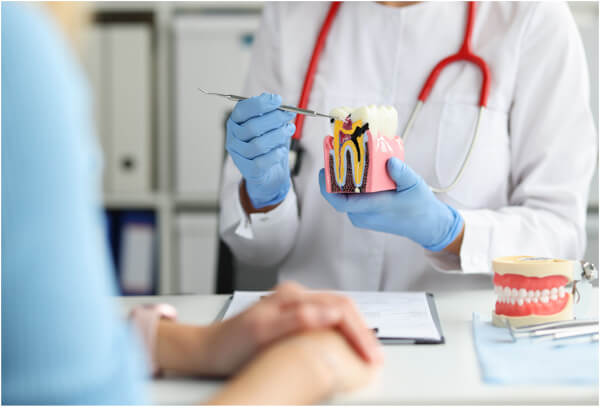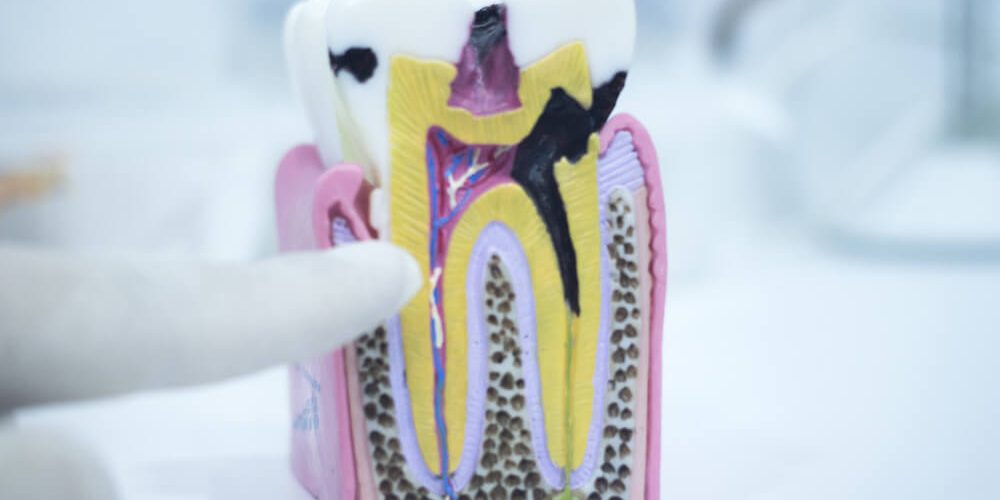Enamel is a thin transparent outer coating on teeth which helps protect the tooth. It protects against wear and tear, staining, plaque/tartar build up, decay and fractures. While it may only be a thin coating it is the hardest tissue on the body, however, this does not mean it is indestructible. In fact, the enamel can erode over time, and this can mean the tooth is more susceptible to damage. Additionally, as the enamel is not actually a living thing, it does not heal once eroded and damage can be problematic.
Signs of enamel erosion
When the enamel wears away it can lead to weaker areas of enamel which are more prone to breakages and infiltration by bacteria. Potential cavities can form and if left untreated, this can lead to potential abscess or infection. Due to the many problems caused by enamel erosion, it is essential to spot signs early and have regular dental visits to address issues. Some key signs to look out for have been outlined below
- Any decay around your teeth
- Darkening or staining of teeth
- Noticeable indentations within teeth
- Any cracks or chips in teeth
- Increased sensitivity of teeth, especially with hot/cold items
Protecting enamel
Unfortunately, the enamel will not grow back but you can halt early enamel decay. Focusing on prevention is usually the best option. This involves strengthening your teeth against potential harmful bacteria and avoiding unnecessary damage to the enamel. Ensuring your enamel stays will differ based on your personal circumstances, including whether you already have some enamel damage or tooth decay. The normal methods of oral hygiene are important, such as brushing twice a day, flossing daily, and visiting the dentist regularly. However, there are some other methods that have been outlined below to ensure that your enamel stays in good condition:
- Use fluoride toothpaste twice daily
- Use mouthwash at a different time to tooth brushing
- During your dental visits ask your dentist if you have signs of tooth wear. If you do, then discuss whether a mouthguard for night-time use is viable.
- Ensure you utilise a soft or medium bristle brush when brushing your teeth as it can avoid unnecessary damage to your enamel.
- Whenever you chew gum ensure it is sugar free to avoid any unnecessary damage to teeth.It also increasing your saliva production to further clean teeth
- Following each meal, you should rinse out your mouth to remove debris as much as possible
- Try as best as you can to minimise your consumption of acidic items, this includes soft drinks, and citrus fruits
If you are concerned about tooth wear, want to improve your bite or improve the cosmetics of worn teeth, then call our office in Sutton today, and we will chat through your options. 020 8629 1433.


